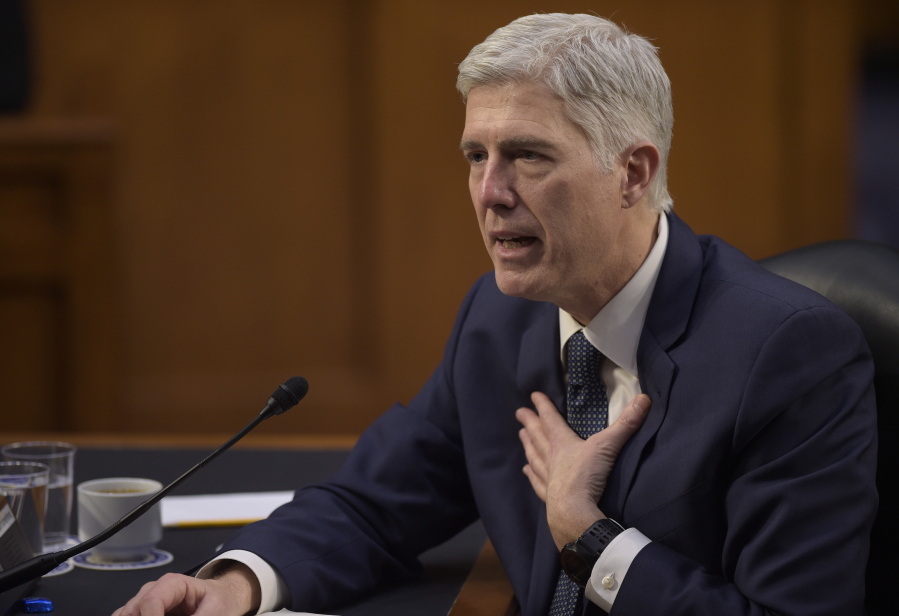Supreme Court Justice Neil M. Gorsuch cast his first consequential vote Thursday night, siding with the court’s other four conservatives in denying a stay request from Arkansas death-row inmates facing execution.
Hours later, the state executed one of the men, the first lethal injection carried out there since 2005.
New justices have described being the final word on whether a death-row inmate is executed — often during a late-night, last-chance appeal to the Supreme Court — as a time when the responsibility of the role crystallizes. Indeed, one of the court’s most solid death-penalty supporters, Justice Samuel A. Alito Jr., was tasked on his first full day as a justice in 2006 with deciding whether to dissolve a stay that kept Missouri from going forward with an execution. The stay was upheld, and Alito was not listed among the dissenters.
Gorsuch’s reasoning for his vote is not known. Neither he nor the other justices who turned down the request explained the decision. But Gorsuch was sworn in on April 10, and he has had some time to study Arkansas’ well-publicized attempt to execute several inmates before a drug used in their planned lethal injections expires.



